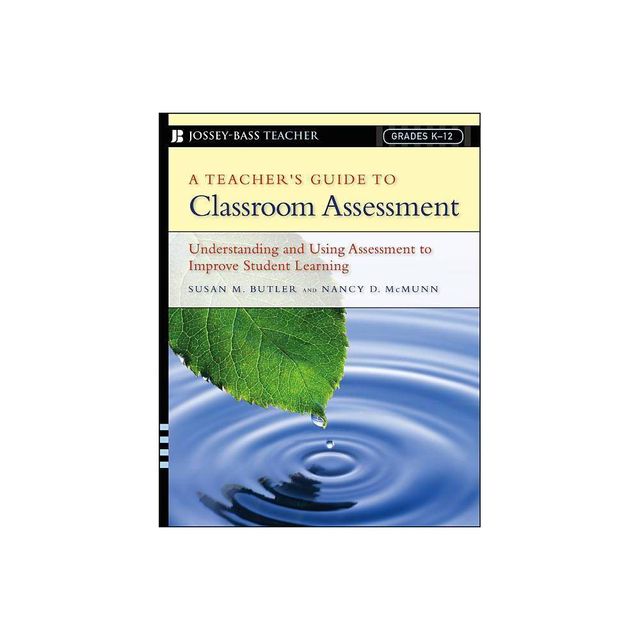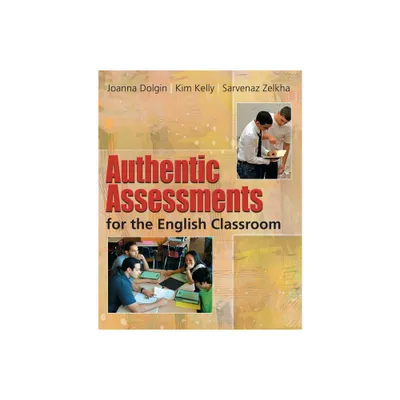Home
Classroom Assessment and Grading That Work
Loading Inventory...
Barnes and Noble
Classroom Assessment and Grading That Work
Current price: $27.95


Barnes and Noble
Classroom Assessment and Grading That Work
Current price: $27.95
Loading Inventory...
Size: OS
*Product Information may vary - to confirm product availability, pricing, and additional information please contact Barnes and Noble
In
Classroom Assessment and Grading That Work
, Robert J. Marzano provides an in-depth exploration of what he calls "one of the most powerful weapons in a teacher's arsenal." An effective standards-based, formative assessment program can help to dramatically enhance student achievement throughout the K-12 system, Marzano says. Drawing from his own and others' extensive research, the author provides comprehensive answers to questions such as these:
* What are the characteristics of an effective assessment program?
* How can educators use national and state standards documents as a basis for creating a comprehensive, topic-based assessment system?
* What types of assessment items and tasks are best suited to measuring student progress in mastering information, mental procedures, and psychomotor procedures?
* Why does the traditional point system used for scoring often lead to incorrect conclusions about a student's actual knowledge?
* What types of scoring and final grading systems provide the most accurate portrayal of a student's progress along a continuum of learning?
In addition to providing teachers with all the tools they need to create a better assessment system,
makes a compelling case for the potential of such a system to transform the culture of schools and districts, and to propel K-12 education to new levels of effectiveness and efficiency.
Classroom Assessment and Grading That Work
, Robert J. Marzano provides an in-depth exploration of what he calls "one of the most powerful weapons in a teacher's arsenal." An effective standards-based, formative assessment program can help to dramatically enhance student achievement throughout the K-12 system, Marzano says. Drawing from his own and others' extensive research, the author provides comprehensive answers to questions such as these:
* What are the characteristics of an effective assessment program?
* How can educators use national and state standards documents as a basis for creating a comprehensive, topic-based assessment system?
* What types of assessment items and tasks are best suited to measuring student progress in mastering information, mental procedures, and psychomotor procedures?
* Why does the traditional point system used for scoring often lead to incorrect conclusions about a student's actual knowledge?
* What types of scoring and final grading systems provide the most accurate portrayal of a student's progress along a continuum of learning?
In addition to providing teachers with all the tools they need to create a better assessment system,
makes a compelling case for the potential of such a system to transform the culture of schools and districts, and to propel K-12 education to new levels of effectiveness and efficiency.


















